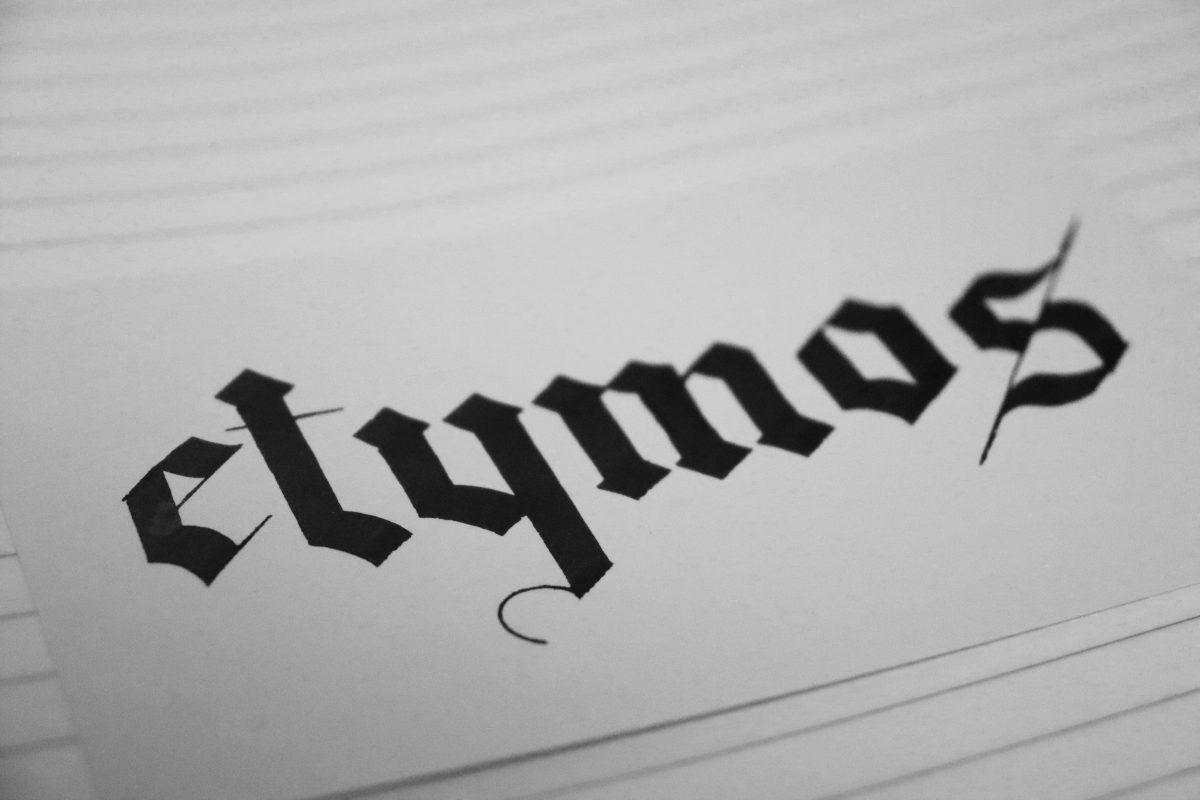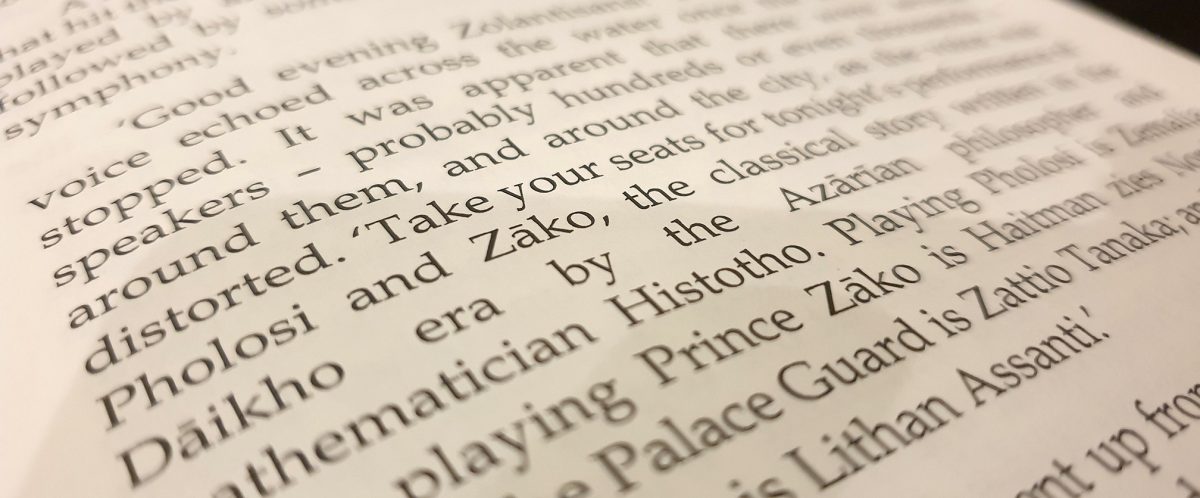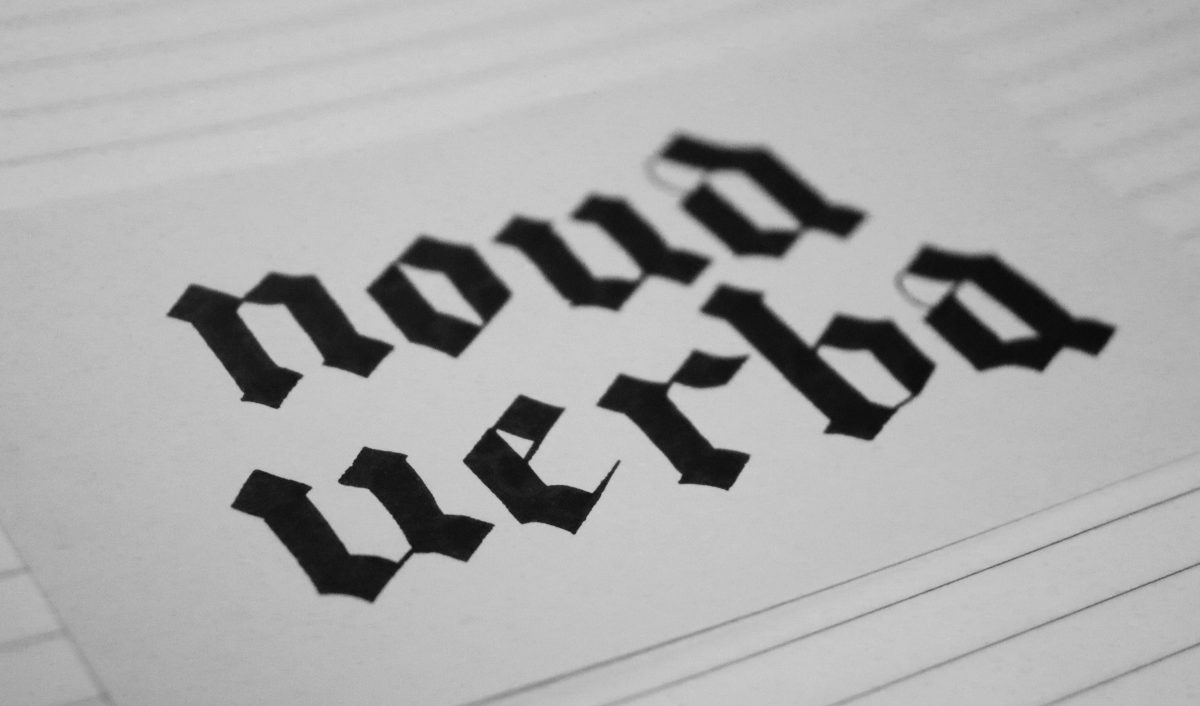Continuing my series of posts on words from the same etymological families, in this post we will look at words that end in ‘-mancy’.
‘-mancy’ is a word-forming element of Greek origin that means ‘divination by means of’. For example, ‘cartomancy’ is ‘divination by means of playing-cards’. And ‘tasseomancy’ is ‘divination by means of reading tea leaves’ (which you might remember from Harry Potter).
We also use words ending in ‘-mancy’ to denote kinds of magic. ‘Necromancy’ is often used to mean a type of magic capable of reanimating dead bodies. ‘Pyromancy’ is often used as a general term for ‘fire magic’ – as in Game of Thrones. (Interestingly, it is the Mad King’s fire mages who are called ‘pyromancers’, but Melisandre is far more fitting of the term, since she does actually use fire for divination.)
This family of words is, clearly, of great use to writers of fantasy. And, it turns out, there are a lot more words in this family than one might first expect – most of them aren’t used very often – perhaps an opportunity to bring some back.
Below are words ending in ‘-mancy’ that I’ve been able to find in dictionaries.
| Word | Meaning and Etymology | Agent Noun |
| bibliomancy | divination by means of opening a book at random; from Greek biblion, meaning ‘paper’, ‘scroll’; could perhaps also be used to refer to any magic that uses books | bibliomancer |
| spodomancy | divination by means of ashes; from Greek spodos, meaning ‘ashes’, ’embers’ | spodomancer |
| sciomancy | divination by communication with shades of the dead; from Greek skia, meaning ‘shade’, ‘shadow’; could perhaps also be used just to mean ‘shadow-magic’ | sciomancer |
| chiromancy | divination by the hand – palm-reading, essentially; from Greek kheir, meaning ‘hand’; could also be used to refer to any kind of magic that uses hand gestures | chiromancer |
| geomancy | divination by means of signs in the Earth – from Greek ge, meaning ‘Earth’ | geomancer |
| lecanomancy | divination by inspection of water in a basin; ultimately from Greek lekos, meaning ‘plate’, ‘pan’; could also be used to mean divination by inspecting broken plates or pottery | lecanomancer |
| capnomancy | divination by smoke; from Greek kapnos, meaning ‘smoke’ | capnomancer |
| gyromancy | divination by walking in circles; this is quite a funny one; from Greek gyros, meaning ‘circle’ | gyromancer |
| crystallomancy | divination by means of crystals – looking into a crystal ball; from Greek krystallos, meaning ‘clear ice’; this word could also be used for ‘divination by looking into ice’ or ‘ice magic’ | crystallomancer |
| rhabdomancy | divination by use of a divining rod; from Greek rhabdos, meaning ‘rod’, ‘wand’, ‘staff’; could also just be used to mean ‘wand-magic’ – so possibly quite a useful word; much of the magic in Harry Potter could perhaps be described as rhabdomancy | rhabdomancer |
| rhapsodomancy | divination by means of verses; from Greek rhapsodos, meaning ‘reciter of epic poems’; could be used to refer to any kind of magic that uses incantations – and so, like rhabdomancy, could refer to a type of magic that appears commonly in fiction; could also be used to refer to a kind of magic that uses songs | rhapsodomancer |
| cartomancy | divination by means of playing-cards; from Greek khartes, meaning ‘layer of papyrus’; could be used for any kind of magic that involves paper | cartomancer |
| astromancy | divination by means of the stars and planets – what today is commonly called ‘astrology’ | astromancer |
| oneiromancy | divination through dreams; from Greek oneiros, meaning ‘dream’ | oneiromancer |
| ophiomancy | divination through interpreting the movements of coiling snakes; from Greek ophis, meaning ‘snake’ | ophiomancer |
| anthracomancy | divination by inspection of burning coals; from Greek anthrax, meaning ‘live coal’; potentially a useful word in combination with ‘pyromancy’ | anthracomancer |
| arithmancy | divination by numbers; from Greek arithmos, meaning ‘number’ | arithmancer |
| catoptromancy | divination by means of a mirror; this is quite a good one; from Greek katoptron, meaning ‘mirror’ | catoptromancer |
| psephomancy | divination by means of pebbles; from Greek psephos, meaning ‘pebble’ | psephomancer |
| tephromancy | divination by means of ashes (from a sacrifice); from Greek tephra, meaning ‘ashes’ | tephromancer |
| ornithomancy | divination by means of birds; from Greek ornis, meaning ‘bird’ | ornithomancer |
| pegomancy | divination by fountains; from Greek pege, meaning ‘fountain’, ‘spring’ | pegomancer |
| pyromancy | divination by means of fire; from Greek pyr, meaning ‘fire’; also just a general word for ‘fire magic’ | pyromancer |
| cubomancy | divination by throwing dice; from Greek kybos, meaning ‘die’ | cubomancer |
| ceromancy | divination by inspection of melted wax; from Greek keros, meaning ‘beeswax’ | ceromancer |
| psychomancy | divination by consultation with souls of the deceased; from Greek psykhe, meaning ‘soul’, ‘mind’; could just be used to refer generally to psychic powers | psychomancer |
| necromancy | divination by communication with the dead; from Greek nekros, meaning ‘dead body’; has the more general meaning of ‘black magic’, and is often used to mean ‘magic involving dead bodies’ | necromancer |
| xylomancy | divination by means of wood; from Greek xylon, meaning ‘wood’, ‘timber’ | xylomancer |
| onomancy | divination from the letters of a name; from Greek onoma, meaning ‘name’ | onomancer |
| phyllomancy | divination by means of leaves; from Greek phullon, meaning ‘leaf’ | phyllomancer |
| hydromancy | divination by the appearance or motion of liquids; from Greek hydor, meaning ‘water’; could just be used as a general term for ‘water-magic’ (such as water-bending in Avatar) | hydromancer |
| aeromancy | divination by means of air; from Greek aer, meaning ‘air’; could just be used as a general term for ‘air-magic’ (such as air-bending in Avatar) | aeromancer |
| lithomancy | divination by stones; from Greek lithos, meaning ‘stone’; can be used for ‘stone-magic’ | lithomancer |
| chronomancy | divination to determine the favourable time for an action; from Greek khronos, meaning ‘time’; could just be used for ‘time-magic’ | chronomancer |
There are a few others that I found, but they were less interesting. As you can see, there’s a lot of them – you could use them in some quite interesting ways in fantasy stories.
The table below gives some words ending in ‘-mancy’ that I’ve made up with my limited knowledge of Classical Greek. (I haven’t checked if anyone else has made these up too – it’s quite possible.)
| Word | Meaning and Etymology | Agent Noun |
| electromancy | divination by means of amber; divination by means of electricity; electricity-magic; from Greek elektron, meaning ‘amber’ | electromancer |
| chromomancy | divination by means of colour; colour-magic; from Greek khroma, meaning ‘colour’ | chromomancer |
| heliomancy | divination by means of the Sun; Sun-magic; from Greek helios, meaning ‘the Sun’ | heliomancer |
| logomancy | word-magic; speech-magic; perhaps a term for any magic that involves incantations; from Greek logos, meaning ‘word’, ‘speech’ | logomancer |
| anthomancy | flower-magic; from Greek anthos, meaning ‘flower’ | anthomancer |
| selenomancy | divination by means of the Moon; from Greek selene, meaning ‘the Moon’ | selenomancer |
As is usual with these posts, I may add more words over time.


